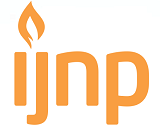Self-Efficacy and Readiness Towards Early Clinical Exposure Among Nursing Students
DOI:
https://doi.org/10.18196/ijnp.v5i2.13460Keywords:
Early Clinical Exposure, nursing students, Self-efficacy, ReadinessAbstract
Background: Early Clinical Exposure is a learning approach that integrates classroom learning with the clinical practice at the students' academic stage. Based on an interview with 3rd-semester Nursing Students, the results showed that they had low self-efficacy and readiness towards early clinical exposure.
Objective: This study aims to evaluate self-efficacy and readiness towards early clinical exposure among nursing students of Universitas Muhammadiyah Purwokerto (UMP). The study design was a cross-sectional study involving 218 undergraduate students at a private Islamic university in their third semester.
Methods: Data were collected using an online questionnaire of Google Form developed by the researcher, and the questions were valid and reliable based on a reliability test. The sampling method in this study was the total sampling technique. There were 50 questions of the item in the questionnaire and 6 items for demographic data.
Result: The majority of pupils showed strong self-efficacy (98.2%) according to the findings of this study and moderate self-efficacy (1.8%). The majority of students presented high readiness (97.7%) and moderate readiness (2.3%). According to the correlation test results, a correlation (r = 0.545, p0.05) was found between self-efficacy and readiness for early clinical exposure.
Conclusion: The higher the student's self-efficacy is, the more the readiness will be to face the practice of early clinical exposure.
References
Akhmad, V. S., Yusuf, S., Safitri, A., Juwita, H., Risnah, R., & Arbianingsih, A. (2019). The Relationship between Self-Efficacy and Readiness of Interprofessional Education (IPE) among Students at the Faculty of Medical and Health Sciences UIN Alauddin Makassar. Journal of Health Science and Prevention.
https://doi.org/10.29080/jhsp.v3i3s.297
Alfaiz, A., Zulfikar, Z., & Yulia, D. (2017). Efikasi Diri sebagai Faktor Prediksi Kesiapan Mahasiswa dalam Mengerjakan Tugas Kuliah. Ilmu Pendidikan: Jurnal Kajian Teori Dan Praktik Kependidikan.
https://doi.org/10.17977/um027v2i22017p119
Arifin, M., Putro, S. C., & Putranto, H. (2014). Hubungan kemampuan efikasi diri dan kemampuan kependidikan dengan kesiapan menjadi guru TIK mahasiswa pendidikan teknik informatika. Teknologi Dan Kejuruan.
Baiti, R. D., Abdullah, S. M., & Rochwidowati, N. S. (2017). Career Self-Efficacy dan Kesiapan Kerja Pada Mahasiswa Semester Akhir. Jurnal Psikologi Integratif.
Bandura, A., & Watts, R. E. (1996). Self-Efficacy in Changing Societies. Journal of Cognitive Psychotherapy.
https://doi.org/10.1891/0889-8391.10.4.313
Benner, P., Sutphen, M., Leonard, V., & Day, L. (2010). Book Review. 42, 141–143.
Cox, J. L., & Simpson, M. D. (2016). Exploring the link between self-efficacy , workplace learning and clinical practice Exploring the link between self-efficacy , workplace learning and clinical practice. November.
Emsza, B., Eliyana, A., & Istyarini, W. (2016). The Relationship Between Self Efficacy and Readiness for Change: The Mediator Roles of Employee Empowerment. Mediterranean Journal of Social Sciences.
https://doi.org/10.5901/mjss.2016.v7n3s1p201
Fitri, H., Kamil, H., Ibrahim, K., & Hadi, M. (2016). Kurikulum Inti Pendidikan Ners Indonesia 2015 Asosiasi Institusi Pendidikan Ners Indonesia. www.aipni-ainec.com
Fitriati, A. N., & Dewi, E. (2018). Hubungan Antara Self Efficacy dengan Hasil Evaluasi Osca Mahasiswa Prodi Keperawatan Universitas Muhammadiyah Surakarta. Universitas Muhammadiyah Surakarta.
Govindarajan, S., Vasanth, G., Kumar, P. A., Priyadarshini, C., Radhakrishnan, S. S., Kanagaraj, V., Balasubramanian, N., Kumar, P. N., Divya, T. J., & Aishwarya, C. N. (2018). Impact of a Comprehensive Early Clinical Exposure Program for Preclinical Year Medical Students. Health Professions Education.
https://doi.org/10.1016/j.hpe.2017.06.002
Löfmark, A., Thorkildsen, K., Råholm, M. B., & Natvig, G. K. (2012). Nursing students’ satisfaction with supervision from preceptors and teachers during clinical practice. Nurse Education in Practice.
https://doi.org/10.1016/j.nepr.2011.12.005
Meshram, S. W., Shaikh, S. I., & Khobragade, K. J. (2016). To study the perceptions of first year MBBS students towards “Early Clinical Exposure (ECE) in Anatomy.” Journal of the Anatomical Society of India, 65(2), S54.
https://doi.org/10.1016/j.jasi.2016.08.175
Mitchell, K. M., & Mcmillan, D. E. (2018). Nurse Education Today A curriculum-wide assessment of writing self-e ffi cacy in a baccalaureate nursing program ☆. Nurse Education Today, 70(December 2017), 20–27. https://doi.org/10.1016/j.nedt.2018.08.003
Moeini, B., Mohammad, S., Hazavehei, M., Faradmal, J., Ahmadpanah, M., Dashti, S., & Hashemian, M. (2020). The relationship between readiness for treatment of substance use and self-efficacy based on life skills. Journal of Ethnicity in Substance Abuse, 0(0), 1–13.
https://doi.org/10.1080/15332640.2020.1772930
Nyambe, H., Rahayu, G. R., Kedokteran, J., Kedokteran, F., Hasanuddin, U., Kedokteran, D. P., Kedokteran, F., & Gadjah, U. (2016). Faktor-Faktor yang Mempengaruhi Self Directed Learning Readiness pada Mahasiswa Tahun Pertama, Kedua, dan Ketiga di Fakultas Kedokteran Universitas Hasanuddin dalam PBL. Jurnal Pendidikan Kedokteran Indonesia The Indonesian Journal of Medical Education, 5(2), 67–77.
https://doi.org/10.22146/jpki.25318
Omer, T. (2016). Nursing Students’s Perceptions of Satisfaction and Self-Confidence with Clinical Simulation Experience. Journal of Education and Practice, 7(5), 131–138. www.iiste.org
Panduragan, S. L., Abdullah, N., Hassan, H., & Mat, S. (2011). Level of confidence among nursing students in the clinical setting. Procedia - Social and Behavioral Sciences, 18, 404–407.
https://doi.org/10.1016/j.sbspro.2011.05.059
Plemmons, C., Clark, M., & Feng, D. (2017). SC. Nurse Education Today.
https://doi.org/10.1016/j.nedt.2017.12.029
Rawekar, A., Jagzape, A., Srivastava, T., & Gotarkar, S. (2016). Skill learning through early clinical exposure: An experience of Indian medical school. Journal of Clinical and Diagnostic Research.
https://doi.org/10.7860/JCDR/2016/17101.7022
Reed, M. B., Woodruff, S. I., Holt, M., Demers, G., Hurtado, S. L., Reed, M. B., Woodruff, S. I., Holt, M., & Demers, G. (2019). The relationship between self-efficacy , readiness to change , and AUDIT risk levels in a sample of active duty emergency department patients. Military Psychology, 31(3), 187–199.
https://doi.org/10.1080/08995605.2019.1579607
Rowbotham, M., & Owen, R. M. (2015). Nurse Education in Practice The effect of clinical nursing instructors on student self-ef fi cacy. Nurse Education in Practice, 15(6), 561–566.
https://doi.org/10.1016/j.nepr.2015.09.008
Siah, C. J., Lim, F. P., Lim, A. E., Lau, S. T., & Tam, W. (2019). Efficacy of team-based learning in knowledge integration and attitudes among year-one nursing students: A pre- and post-test study. Collegian.
https://doi.org/10.1016/j.colegn.2019.05.003
Sugiyono. (2017). Pendekatan Kuantitatif, Kualitatif, Kombinasi, R&D dan Penelitian Evaluasi. In Metodelogi Penelitian.
Turan, M. B., Education, P., & Education, P. (2018). The Impact of Self-Directed Learning Readiness on Critical Thinking and Self-Efficacy among the Students of the School of Physical Education and Sports. 7(6), 98–105.
https://doi.org/10.5430/ijhe.v7n6p98
Utami, Y. G. D., & Hudaniyah. (2013). Self Efficacy Dengan Kesiapan Kerja Siswa Sekolah Menengah Kejuruan. Jurnal Ilmiah Psikologi Terapan.
Yuliana., Emilia, O., & Rahayu, G. R. (2012). Persepsi Mahasiswa dan Dosen terhadap Early Clinical Experience pada Program SI Keperawatan STIK Immanuel Bandung. Persepsi Mahasiswa Dan Dosen Terhadap Early Clinical Experience Pada Program SI Keperawatan STIK Immanuel Bandung, 1(2), 18–35.
https://doi.org/10.22146/jpki.25082
Yuwanto, D., Mayangsari, M. D., & Anward, H. H. (2016). Hubungan Efikasi Diri Dengan Kesiapan Kerja Pada Mahasiswa Yang Sedang Mempersiapkan Skripsi. Jurnal Ecopsy, 1(4).
Downloads
Additional Files
Published
Issue
Section
License
License
Articles published in the IJNP (Indonesian Journal of Nursing Practices) are licensed under a Attribution 4.0 International (CC BY 4.0) license. You are free to:
- Share — copy and redistribute the material in any medium or format.
- Adapt — remix, transform, and build upon the material for any purpose, even commercially.
This license is acceptable for Free Cultural Works. The licensor cannot revoke these freedoms as long as you follow the license terms. Under the following terms:
Attribution — You must give appropriate credit, provide a link to the license, and indicate if changes were made. You may do so in any reasonable manner, but not in any way that suggests the licensor endorses you or your use.
- No additional restrictions — You may not apply legal terms or technological measures that legally restrict others from doing anything the license permits.
Copyright
Authors who publish with IJNP (Indonesian Journal of Nursing Practices) agree to the following terms:
- Authors retain copyright and grant IJNP (Indonesian Journal of Nursing Practices) the right of first publication with the work simultaneously licensed under an Attribution 4.0 International (CC BY 4.0) that allows others to remix, adapt and build upon the work with an acknowledgment of the work's authorship and of the initial publication in IJNP (Indonesian Journal of Nursing Practices).
- Authors are permitted to copy and redistribute the journal's published version of the work (e.g., post it to an institutional repository or publish it in a book), with an acknowledgment of its initial publication in IJNP (Indonesian Journal of Nursing Practices).














